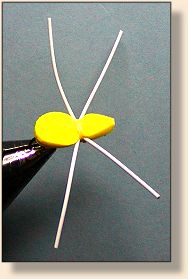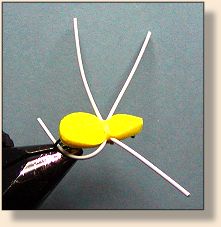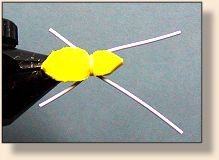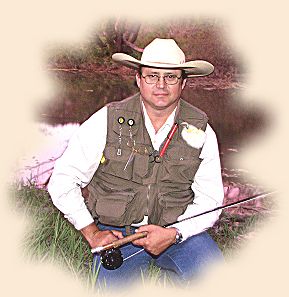I have noticed several threads on the bulletin board about
bream with some polite arguments ranging from the fish will
bite anything thrown at them to the opposite of high selectivity
of the bream. I really hate to break the news...but both sides
are correct. What we sometimes fail to see is the conditions
the "other angler" was catching them under.
Compared to most, I would only be considered a youngster in this
sport. I have single-mindedly pursued the panfish for only a
little over thirty years now. For me bass are just an extra
bonus when I fish, they are not my main quarry. I know where
they are and how to catch as many as I want. However the big
bull bluegill, the large redbreast, the exceptional shellcrackers
and occasional rock bass (google eye) are my mainstay. I have
read countless magazine articles on "How to" as well as several
books. With today's Internet, an endless supply of information
on any species of fish you want to know about can be found.
I have observed the habits of the bream for some time and in my
home waters which include the Llano, San Saba and San Gabriel
Rivers, I have noticed a few things which seem to almost apply
anywhere in the south. Some of these observations may help
you as well.
The biggest thing one has to realize is that bream are sight
feeders. They have to see it to bite it. That has a lot to
do with the biting of plain old bright hooks. As far as they
will bite anything, that definitely applies to bedding bream
as well as the juveniles. A bedding bream will staunchly
defend its bed, striking at anything that invades it. The
younger ones will bite at just about anything and repeatedly
do so. This is the foremost reason most of us have memories
of these fish as children and where we get the notion that
bream in general will bite anything. When as kids we use
worm, corn, marshmallows or bread on a hook and catch these
little fish, this too lends to the "bite anything" fact.
As the bream gets older and larger, their habits and ranging
changes. The big bull bream usually over a pound or bigger
can get very selective depending on their habitat. I use a
spider pattern with great success here. They are very plain
looking and very basic in tying. I tie these quick and they
do not necessarily come out looking "pretty." Yellow foam,
two white legs tied in the middle X-Wing fashion and whip
finish, presto, spider.

On numerous occasions I would be catching some really nice
bream on any one of the above mentioned rives and suddenly
there would a lot of looking but no bites. I used to think
that they had just gotten used to that fly and I would change
to something else and the biting would start again. Not so.
Upon closer inspection and having proved this through many
tests, these larger bream are no dummies and contrary to their
younger counterparts, will not strike at a fly that just does
not look right. A prime example of this is the spiders that
I switched after the hits stopped, all had one common problem
caused randomly by wind, my casting or the fish hitting and
missing the fly. One of the legs would be folded under the
bend of the hook.

The larger bream would inspect it but not take it. When I
freed the leg and placed it where it belonged, once again
I would get good hits and large bream. This prompted me
to change the leg style on the spiders.

Another behavior I have consistently noticed is that with
their dependency on sight feeding, during windy days on
large pools of water they would be patrolling the leeward
side of the pool. There is little to no surface ripple,
as some natural obstacle would block the wind. This gives
them a clear picture of the surface for insects and such
that are blown on the surface of the water.
For ones who live in fast moving waters such as some large
stretches of the Llano River, the larger bream will be out
in the deeper channels and usually patrolling with the big
boys, bass. During one summer I was fishing a stretch of
the Llano just as dawn was breaking. The water and sky was
a slate gray and I was using a white wooly bugger to simulate
the small baitfish so commonly found in our rivers. I was
doing really well with the Guadalupe Bass when suddenly I
was picking up one large bream after another. This went
on for about 15 minutes and then they were gone. That has
happened now three or four times and it was quite exciting!
River bream of faster currents also tend not to be so picky
as a meal is moving and it's a hit, or miss and go hungry game.
They tend to hit harder and have no manners what so ever. I
have seen these fish clear the water coming up to take a fly.
Sometimes the competition from other fish drives this behavior
also.
So as you can see from my own experiences I can say that bream
can be selective and almost as picky as trout or just hit any
old thing you put out there. In any case it's the pleasure we
get out of these little fish and knowing they will always be
there for us, ready and willing to play. ~
Hillfisher
|









